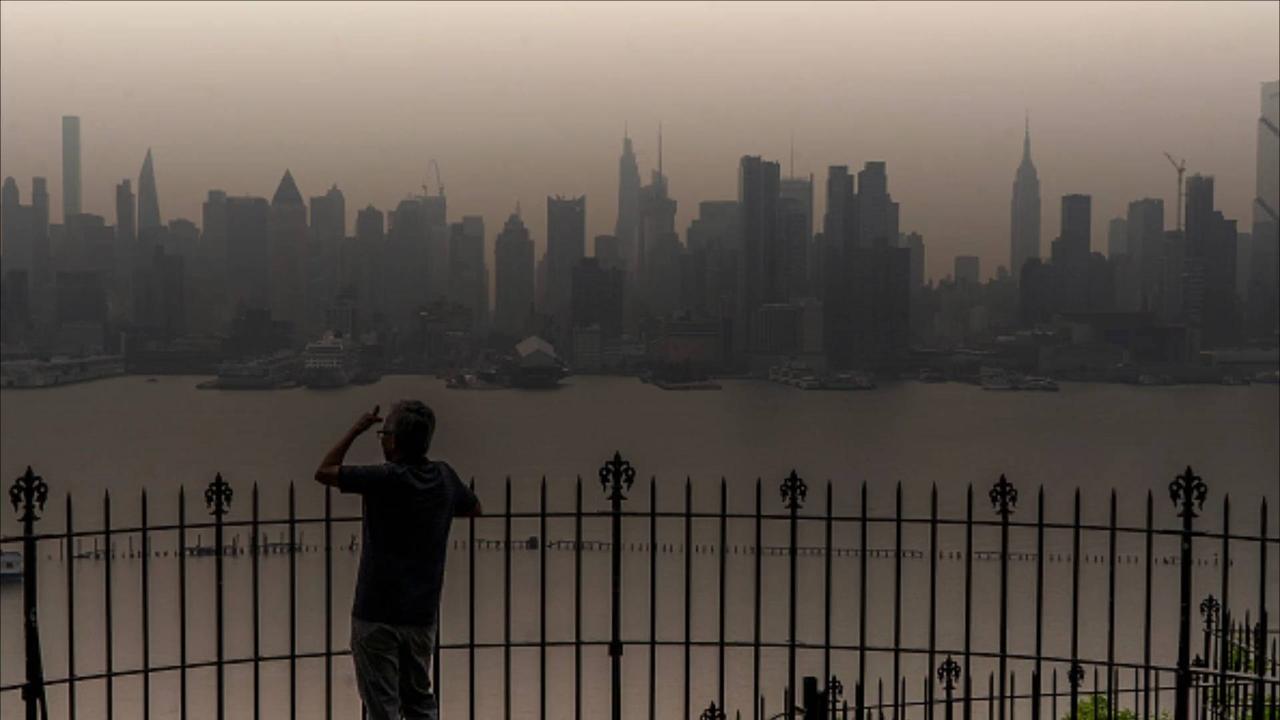
How Smoke From Canada's , Wildfires Has Transformed , Skies in the U.S. 'The New York Times' reports that atmospheric scattering is why skies across the northeastern United States have turned orange amid heavy smoke from Canadian wildfires.
On a normal day with a blue sky, sunlight bounces off of molecules of air in the atmosphere, scattering high energy colors with shorter wavelengths into blue light.
Larger smoke particles scatter the orange and red colors in the light from the sun.
The resulting surreal haze is also closely related to how the sky appears at sunset.
As the sun travels closer to the horizon, only longer wavelengths can travel through the atmosphere to be perceived as the reddish hues visible at sunset.
'NYT' reports that hundreds of fires continue to burn across Eastern Canada, spreading clouds of hazardous air pollution across a large swath of the eastern U.S. Air quality warnings have been issued for areas spanning from New York to the Carolinas.
Air quality warnings have been issued for areas spanning from New York to the Carolinas.
On June 7, major cities experienced unhealthy levels of air pollution, including Philadelphia, Washington and New York.
'NYT' reports that while air quality is expected to improve in parts of the Northeast, smoke from the ongoing fires continues to spread across the U.S. On June 8, Canadian authorities said that approximately 250 wildfires were burning out of control in the eastern part of the country.
Some of those fires have already burned for weeks.









